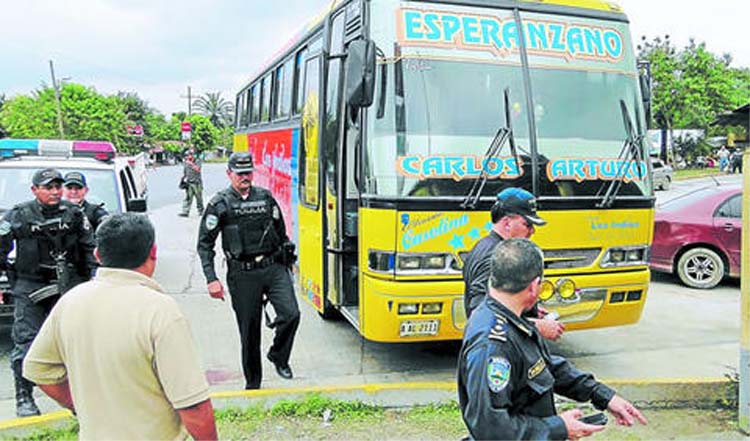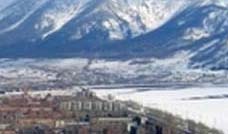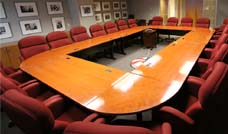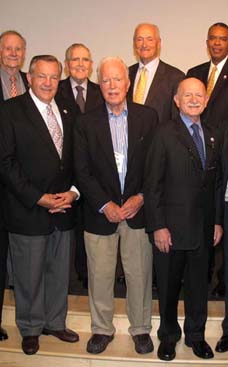
Security concerns prompted the U.S. Peace Corps to announce last week that it would pull all 158 volunteers out of Honduras. As in Guatemala and El Salvador, Honduras's neighbors in the Northern Triangle region of Central America, the homicide problem goes back decades. But as Mexico's billionaire drug mafias expand their smuggling networks deeper into Central America to evade stiffer enforcement in Mexico and the Caribbean, violence has exploded, as if the cocaine were gasoline tossed on a fire. Honduras's grim tally reached 6,239 killings in 2010, compared with 2,417 in 2005, and researchers say the count will be even higher this year. The largest number of homicides occurred here around San Pedro Sula, a once-booming manufacturing center that is fast becoming the Ciudad Juarez of Central America.
Honduras had 82.1 homicides per 100,000 residents last year, the highest per-capita rate in the world, according to a global homicide report published by the United Nations in October that included estimates for Iraq and Afghanistan
Grim toll as cocaine trade expands in Honduras
By Nick Miroff,
Published: December 26
Caption: One person was killed and three were injured including Peace Corps Volunteer Lauren Robert, 27, in an attack on a bus on the transportation route from San Pedro Sula to La Esperanza, Intibucá on December 4, 2011. The Peace Corps Volunteer was shot in the right leg and was taken to recover in a private clinic in San Pedro Sula and later back to the US. Honduras suffers the world's highest murder rate - 82 killings per 100,000 people a year. The army is currently taking on policing duties in response to a wave of violence. All 158 currently serving volunteers are safe and accounted for and will participate in a conference in January before returning to the United States on administrative leave. Peace Corps announced on December 21, 2011 that the agency will review the safety and security climate in Honduras before continuing with volunteer operations.
SAN PEDRO SULA, Honduras - In the most murderous part of the most murderous country in the world, the families of murdered sons and husbands and sisters meet each month in a concrete building next to the Nuestra Senora de Guadalupe church.
They sit in plastic chairs, leaning forward to speak, and the anguish pours out. There is the dread of birthdays, anniversaries and Christmas. Or knowing who the killer is, and that he will not be arrested, and the perversity of that.
The group had 10 families when it started three years ago. Today it has 60, and all but one of their cases remain unsolved.
"We are living in constant fear," said Blanca Alvarez, wearing a pin bearing a portrait of her dead son, Jason, shot in a carjacking in 2006. "We have had marches for peace, wearing white, releasing white balloons into the air. Nothing is going to change here. Nothing."
Honduras had 82.1 homicides per 100,000 residents last year, the highest per-capita rate in the world, according to a global homicide report published by the United Nations in October that included estimates for Iraq and Afghanistan. Security concerns prompted the U.S. Peace Corps to announce last week that it would pull all 158 volunteers out of Honduras.
As in Guatemala and El Salvador, Honduras's neighbors in the Northern Triangle region of Central America, the homicide problem goes back decades. But as Mexico's billionaire drug mafias expand their smuggling networks deeper into Central America to evade stiffer enforcement in Mexico and the Caribbean, violence has exploded, as if the cocaine were gasoline tossed on a fire.
Honduras's grim tally reached 6,239 killings in 2010, compared with 2,417 in 2005, and researchers say the count will be even higher this year. The largest number of homicides occurred here around San Pedro Sula, a once-booming manufacturing center that is fast becoming the Ciudad Juarez of Central America.
That troubled city on the U.S.-Mexico border and San Pedro Sula share more than a reputation for low-wage assembly plants and fratricidal violence. They are at opposite ends of the billion-dollar smuggling chain that extends from the north coast of Honduras to the United States.
It starts on the isolated beaches and jungle airstrips of Honduras's Mosquitia region, where 95 percent of the suspected drug flights from South America to Central America land, according to U.S. narcotics agents. U.S. radar detected 90 such flights into Honduras last year, compared with 24 in 2008, marking a major shift in trafficking patterns that indicates a strong preference for the country's rugged geography and feeble institutions.
In March, authorities raided a cocaine processing lab in the mountains near San Pedro Sula. The facility was the first of its kind in Central America, capable of churning out a ton of powder each month by combining imported coca paste with hydrochloric acid and other chemicals.
Then, in July, a semi-
submersible "narco submarine" with $180 million worth of cocaine was caught by the U.S. Coast Guard in international waters off Honduras, the first such craft detected in the Caribbean. Since then, three more have been busted.
Page break by AutoPager. Page( 2 ). Goto Window Top Page Up Page Down Goto Window Bottom LoadPages
Honduran lawmakers voted overwhelmingly last month to deploy the country's military against drug traffickers, adopting the security strategy charted by Mexican President Felipe Calderon with mixed results.
Overall, U.S. officials estimate that 25 to 30 tons of cocaine arrive in Honduras each month by air and sea - one-third of the world's total volume - before continuing north into Mexico through Guatemala and Belize on fast boats, fishing vessels or cargo trucks.
"Honduras is by far the world's largest primary transshipment point for cocaine," said a U.S. official working here who spoke on the condition of anonymity, citing security protocols.
Shepherding the precious merchandise is a dangerous but lucrative occupation, as the payoff to local smugglers for receiving an average-size planeload of 500 kilograms and delivering it to Guatemala can be $1 million. Honduran police commanders say smugglers are also increasingly paying their contacts in raw product rather than cash, driving up local drug-dealing and the lethal violence that accompanies it.
‘Total impunity'
Researchers caution that the surge in killings here cannot be attributed entirely to narcotics trafficking. As in Ciudad Juarez, drug-fueled violence appears to have fostered an overall climate of impunity, in which bullets settle the slightest dispute and anyone can literally get away with murder.
Journalists, labor activists and gays also are apparently being killed at elevated rates, and political violence has flared since the 2009 coup that deposed leftist President Manuel Zelaya. Then there are the thousands of other Hondurans who seemingly have nothing to do with the drug trade who have been slain in carjackings, muggings and hotheaded feuds.
"You always imagine that your parent will die of old age, not murder," said Claudia Castillo, whose father, who drove a grocery delivery truck, was killed last December in San Pedro Sula for falling behind on extortion payments, which gang members here call the impuesto de guerra ("war tax"). He had been mugged, assaulted or shot at on at least eight other occasions, Castillo said, including an incident a few months before his death in which teenage gangsters ordered him to dance and fired at his feet.
"We begged him to quit, but he said he had to pay for us to go to college," Castillo said. After burying him, her family moved to another neighborhood after receiving new threats from the gang.
At nearly every business here, from Burger King to the smallest mini-market, armed men with 12-gauge shotguns stand guard. Those who can afford it barricade their families behind razor wire, 10-foot walls and electrified fencing.
"If a person kills someone and the next day they're sitting in a restaurant drinking coffee as if nothing happened, then that person feels they have permission to kill anyone they want," said Jose Antonio Canales, a priest who works with the support group for victims' families. "There is total impunity."
Gang warfare
For much of the 20th century, Canales said, the north coast of Honduras was a place of opportunity, drawing workers to the vast banana plantations owned by U.S. fruit companies. In the 1980s, as civil wars raged in Nicaragua, Guatemala and El Salvador, Honduras and especially the San Pedro Sula area were held up as a model of export-driven development, attracting waves of workers to the assembly plants known as maquilas.














